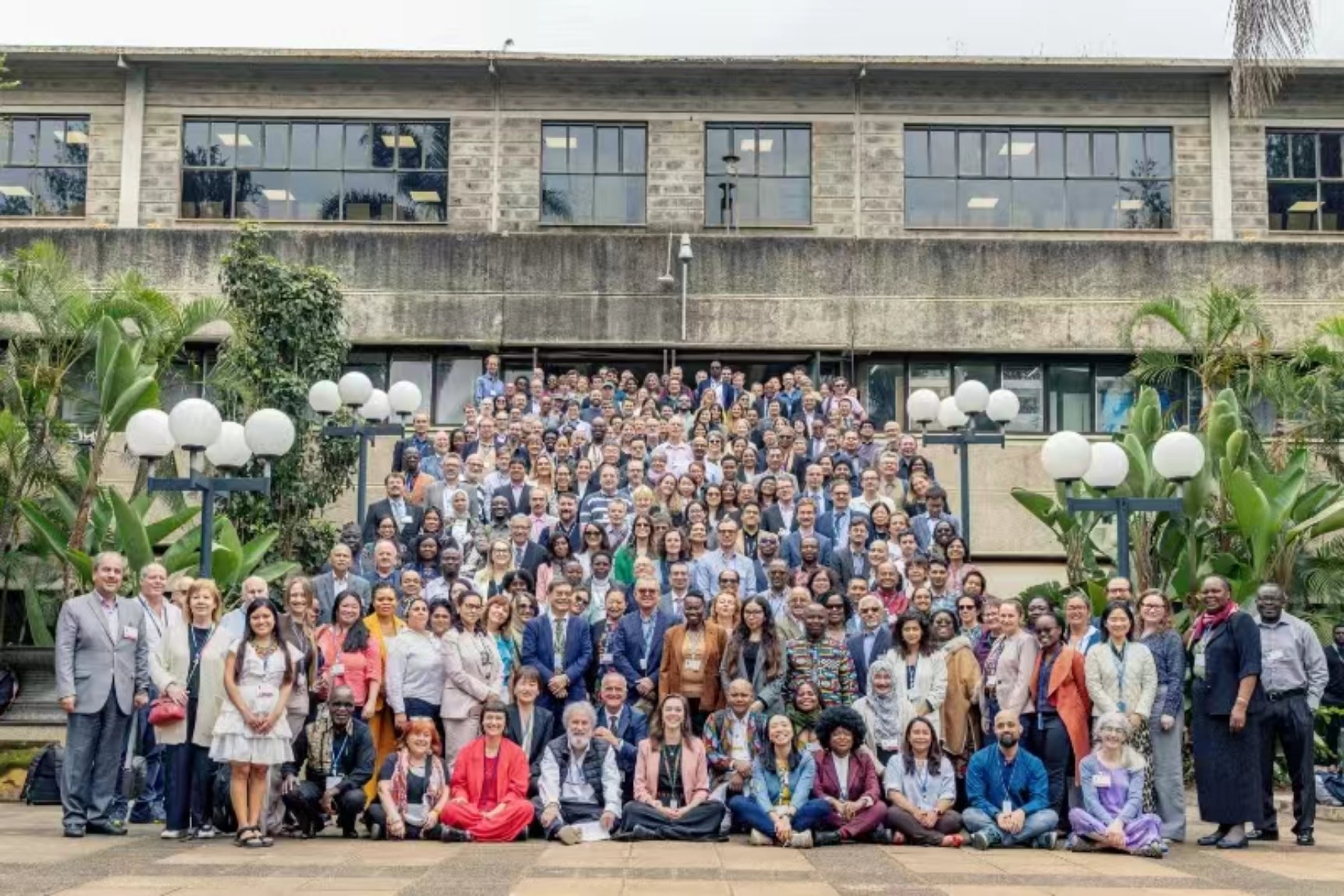
From September 2 to 5, 2024, several faculty members from the College of Environmental Sciences and Engineering at Peking University traveled to the headquarters of the United Nations Environment Programme (UNEP) in Nairobi, the capital of Kenya, to attend the third Global Authors Meeting for the Global Environment Outlook-7 (GEO-7). During the meeting, they engaged in in-depth discussions with senior scholars and explored prospects for future collaboration.
UNEP’s Global Environment Outlook Report
As one of UNEP’s flagship reports and core initiatives, the Global Environment Outlook aims to provide comprehensive and authoritative environmental assessments that guide global environmental governance and sustainable development policies. Since its first publication in 1997, the GEO reports have played a crucial role in assessing the state of the global environment and identifying policy directions. The seventh Global Environment Outlook (GEO-7) brought together nearly 200 scholars from around the world in the fields of environmental science and management. The report addresses the three major global crises of climate change, biodiversity loss, and pollution and waste, in addition to land degradation. It focuses on transformations in five key systems—economy, materials, energy, food, and environment—pointing the way to sustainable transitions at both global and regional levels.

Figure 1: Group Photo of All GEO-7 Authors
Contribution to the GEO Report from the College of Environmental Sciences and Engineering at Peking University
The College of Environmental Sciences and Engineering at Peking University emphasizes supporting global environmental governance through comprehensive teaching and research, integrating foundational science with decision-making at think-tank levels. The college’s education and research system is designed to cultivate interdisciplinary leaders with a global perspective, providing continuous and multi-level support for environmental compliance and global governance. Numerous faculty members have participated in international scientific teams for IPCC AR6, UNEP GEO, and various environmental conventions, contributing key scientific evidence. Four faculty members serve as co-chairs of international scientific teams for environmental conventions and have been recognized multiple times by the United Nations and other international organizations.
Since the publication of the first Global Environment Outlook (GEO) report in 1997, many faculty members from the Department of Environmental Science and the Department of Environmental Management have been involved in every edition of the report. They have served as members of the Intergovernmental and Multi-Stakeholder Advisory Group (IMAG), Co-Chairs, Coordinating Lead Authors (CLA), and Lead Authors (LA) in writing various chapters of the GEO report, demonstrating the college’s long-term contribution to global environmental governance.
In the current GEO-7 report, Professor Huang Yi from the Department of Environmental Science, who was the Co-Chair of GEO-6, serves as a member of IMAG. Professor Hu Min is the Coordinating Lead Author (CLA) of Chapter 3 (Air Pollution), while Professor Xu Jianhua from the Department of Environmental Management is the Lead Author (LA) of Chapter 14 (Economic System Transition Pathways). Researcher Dai Hancheng serves as the Lead Author of Chapter 20 (Transformation Pathways in the Asia-Pacific Region). Additionally, Peking University's IMED model, a representative integrated assessment model developed independently by China, was selected as the core model for China’s transformation scenario in GEO-7. This model provides robust evidence for systematically explaining China's carbon neutrality pathways and their multidimensional remote effects on water, energy, and food.